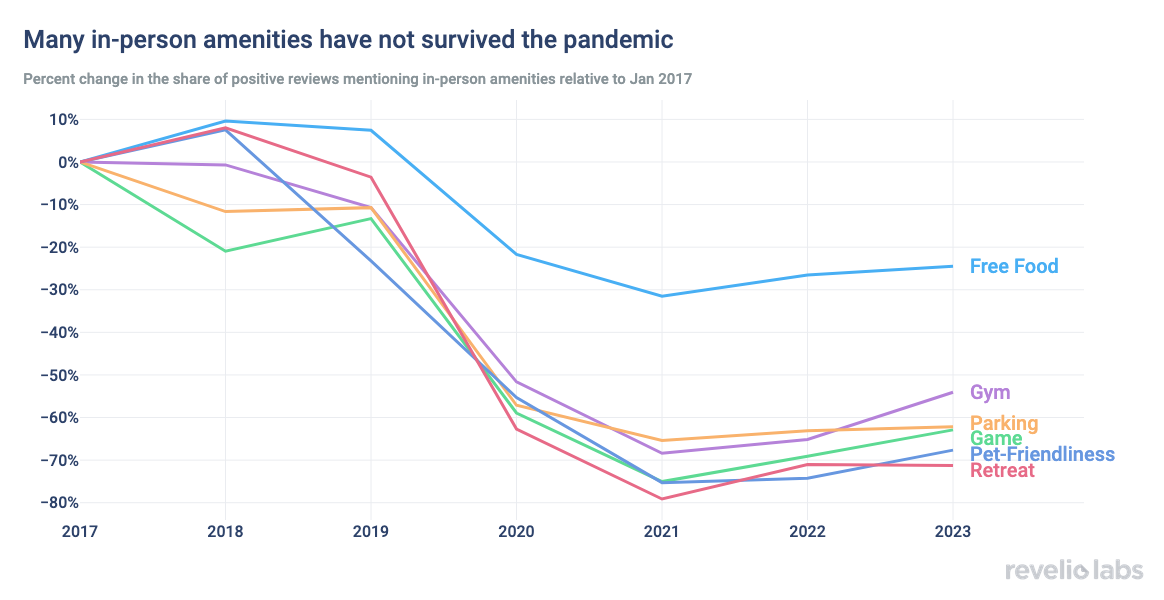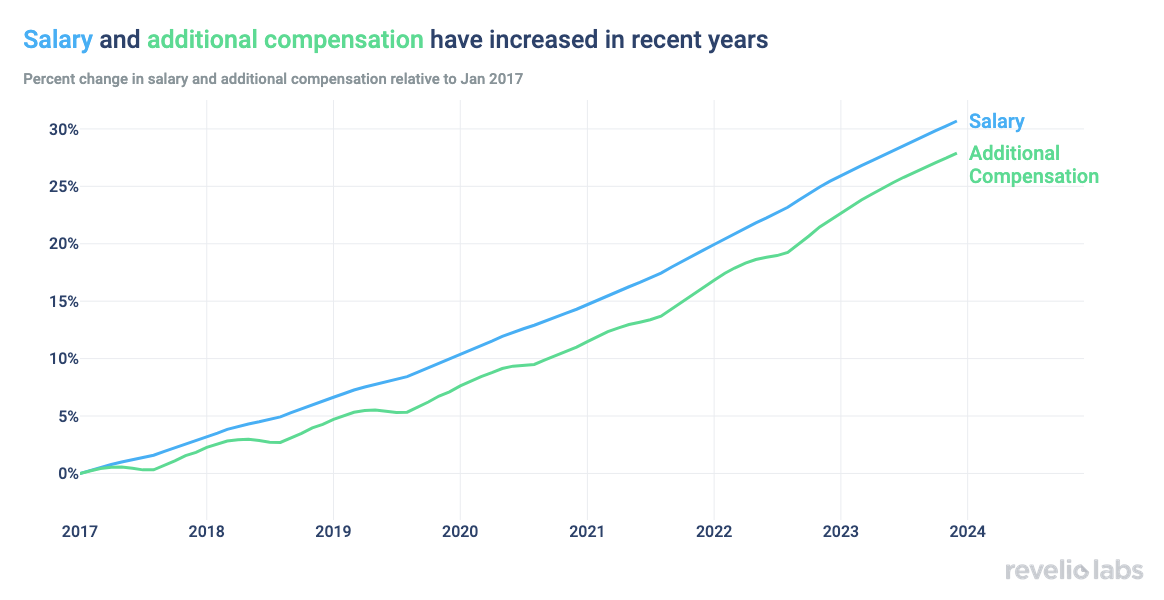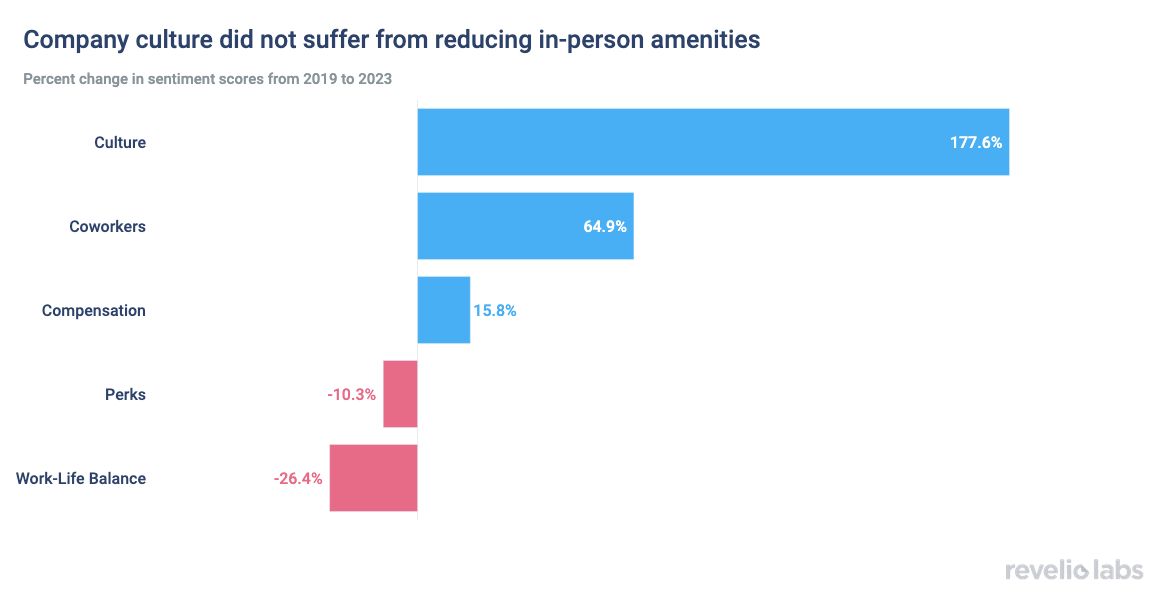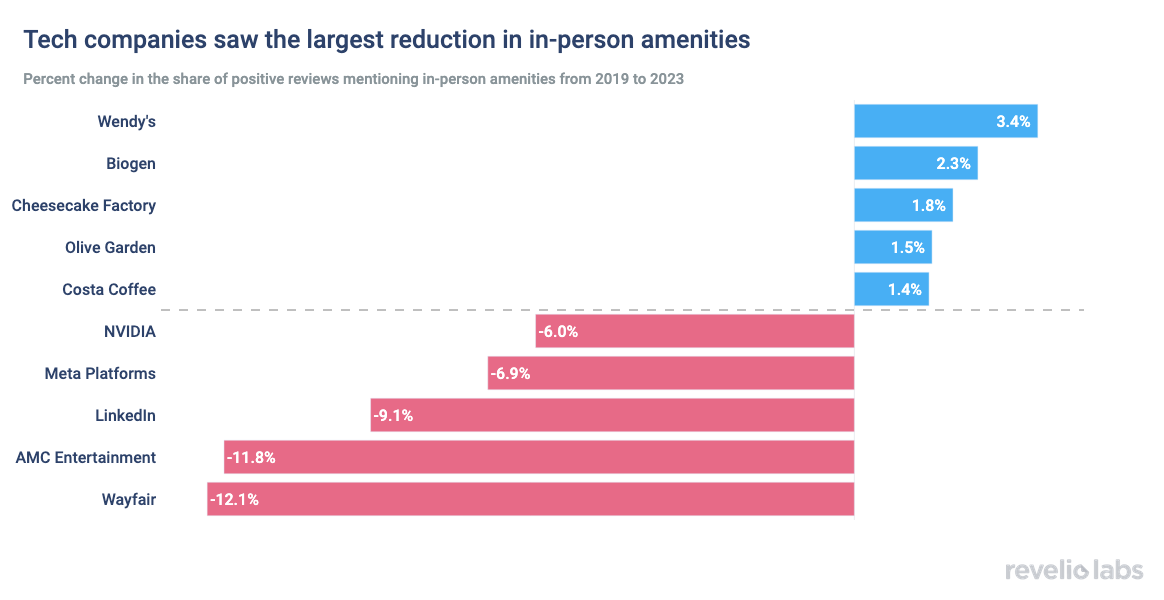Employees Prefer More Bucks, Not Free Starbucks
The perk-cession might not matter after all.

The pandemic has transformed office space forever, making many in-person amenities much less common.
However, part of the loss in amenities is made up through increasing salary and compensation.
In addition, sentiment regarding work culture and relationships with coworkers has not suffered from the disappearance of in-person amenities. Instead, it has improved as workers return to office.
Until recently, kombucha on tap, snack bars, and gaming devices were common sights in many companies. However, in the wake of the pandemic, employees returning to the office may have noticed their absence. The pandemic has caused a shift in our work culture, as highlighted in our previous newsletter. This week, we delve into the transformative effects of the pandemic on in-person amenities and their broader impact on the office environment.
Using Revelio Labs' workforce data to analyze Russell 3000 companies that resumed in-person operations in 2023, we observe a decrease in the proportion of positive employee reviews referencing various in-person amenities when compared to pre-pandemic levels. This decline indicates a reduction in the availability of these amenities since the onset of the pandemic and an unlikelihood that they will return.


However, amid the changes brought about by the pandemic, the reduction in the availability of in-person amenities has been paralleled by a steady increase in both salary and additional compensation. As companies continue to confront a challenging labor market, the emphasis on tangible benefits, such as higher earnings and financial incentives, has become a pivotal strategy to attract and retain talent.
Sign up for our newsletter
Our weekly data driven newsletter provides in-depth analysis of workforce trends and news, delivered straight to your inbox!


The decline in perks and the increase in compensation are also reflected in employee sentiment data. However, the reduction in in-person amenities does not adversely affect company culture and coworker relationships. In fact, both have improved following the pandemic. Nevertheless, employees are expressing less satisfaction with their work-life balance.


The changes to work environments vary by sector. While several companies in the food services sector have made modest improvements to their in-person amenities, our workforce data show that numerous tech companies have scaled back on theirs. This divergence reflects a strategic shift in priorities, with food service companies aiming to create a more appealing and comfortable in-person workspace, while tech companies recalibrate their strategies, possibly focusing on hybrid work arrangements and alternative methods of fostering employee satisfaction and engagement.




